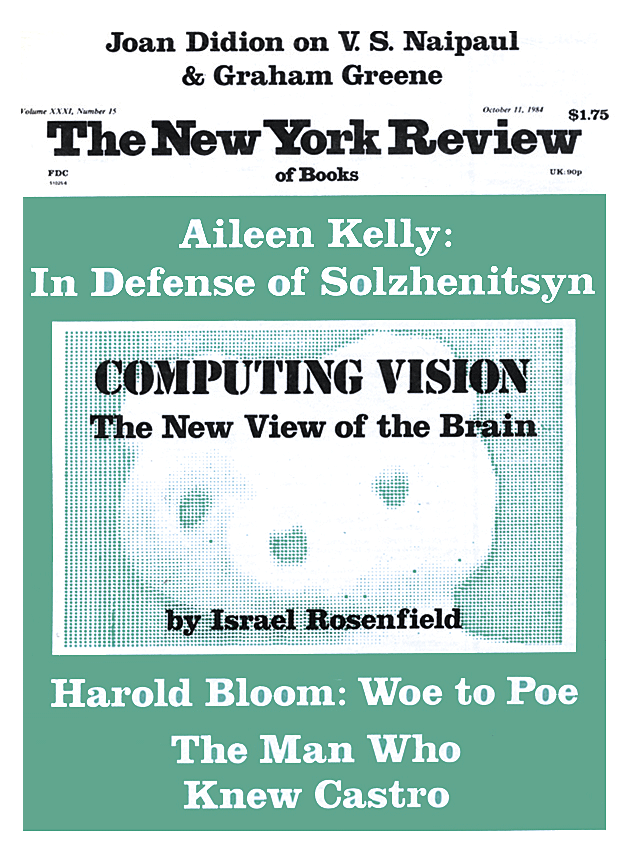The Democrats barely got their campaign through Labor Day before turning their eyes from the voters to cast them coldly upon one another. The single issue left to them now seems to be whose is the fault this time. This may, of course, have been a year when any Democratic nominee was more realistically a candidate for blame than for president. But his party seems to be proceeding with ungainly haste to appoint Walter Mondale to the office of scapegoat, which looks like the only one at its disposal these days.
Mondale’s candle emits a faint glow, to be sure, but, even if it took flame, the blaze of Ronald Reagan’s light would still obscure it. For Reagan is an artist, and Mondale is no more than the rest of us. What distinguishes the artist from the rest of us is that he can tell a story and we can’t. It makes no difference whether it is a story founded upon fact; the artist makes it true. When I hear Frank Sinatra, I have no basis for assuming that this particular lonely heart has learned its lesson, but, for the moment, every fiber of my being believes it has.
Reagan’s story can, with justice, be called too simple, but that is the calculated simplicity of an artist who is playing on, and can very probably count upon, the instinctive piety of the common people. His special genius is that he asks very little of the common people except piety. He can at once give us the illusion that we struggle in the arena and leave us comfortable in the spectator seats. His themes—Grenada, the Olympics—are about combats that were themselves little more than spectacles. There was no very lively opposition in Grenada, and although our athletes were geared to prodigies at Los Angeles, their force could never have been so overmastering if the Soviets and East Germans had made the formation.
But we are by now conditioned to an all-but-unanimous preference for triumphs devoid of real struggle, trophies for which we are never required to run, and testimonials to our benevolence that never ask us to be to much degree generous. Reaganism makes us proud of our patriotism and exempts us from wasting any faculty except the larynx in its exercise.
The Republicans are always formidable when they produce the impression that the Democrats are not quite a legitimate political party. The Democrats knew that danger and tried their best to escape it; they cried out against waste in government and they voted down a platform plank that would have promised never to be the first to use nuclear weapons, and thus sternly divorced themselves from Bolsheviks like Robert McNamara and McGeorge Bundy. These expressions of their desperate anxiety to please serve them not at all; Reagan goes blithely on consigning them to the darkness he appoints for profligates and pacifists.
And yet the Democrats do have a story to tell, although Mondale is too little the artist to tell it, and, in our present state of sedation, too few of us would hear him if he did. What will he do at the inevitable and dreadful moment in their debate when the President asks if we are not better off than we were four years ago?
After all, Walter Mondale and Geraldine Ferraro are better off; even Jesse Jackson is. So, too, am I in point of fact, and the best thing about that condition is that it has made me understand the irrelevance of the question. It is, of course, pleasant not to run quite so fast under the lash of the Internal Revenue Service. But my children have made their way, my wants are simple, and I am one of those people who had no particular need to be better off, and there are families all around me that acutely needed to be and have been left behind, in some cases even worse off.
My only experience with the smell of a great spirit in this campaign came in a fleeting moment with John Glenn. We were talking in the darkening of his hopes and of his hotel room when he said that America had in this century done the greatest thing any country ever had. I braced myself for the shores of Tripoli and the halls of Montezuma and other precincts that might have been better off if we had never trammeled them. And then John Glenn said that, when he was a boy, 51 percent of the population lived below the poverty level. “And sometime in the 1960s,” he went on, “we got it down below 8 percent. No other country ever did a greater thing than that.”
His statistics were, to be sure, inaccurate—the poverty level has never gone below 11 percent and it is over 15 percent now—but his heart had gone straight to its mark. For John Glenn had been in the arena. He was a combat marine, and to him the true glory resided in the healing arts of peace. And he sank into the shadows for no better reason than that he was unable to tell a story.
Advertisement
This Issue
October 11, 1984


